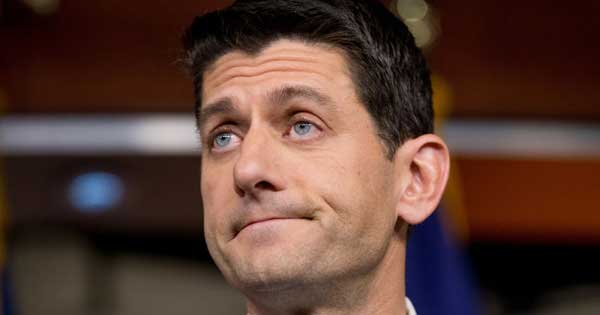In search of a victory for Trump’s first 100 days, the Republicans are attempting to repeal Obamacare by Saturday, April 29. They would phase out the Medicaid expansion that now covers 14 million poor people in order to cut taxes on the rich. And they would end the requirement that insurance companies not charge higher rates for people with pre-existing conditions.
This contradicts a whole raft of Trump’s campaign promises:
“I am going to take care of everybody. I don’t care if it costs me votes or not. Everybody’s going to be taken care of much better than they’re taken care of now. … The government’s gonna pay for it.” —On 60 Minutes, Sept 27th, 2015.
“We’re going to have great plans. They’re going to be much less expensive and they’re going to be much better. … That’s just human decency.” —Town hall, Feb 17th, 2016
“So it’ll be better healthcare, much better, for less money. Not a bad combination.” —On 60 Minutes, Nov 13th, 2016.
“There was a philosophy in some circles that if you can’t pay for it, you don’t get it. That’s not going to happen with us. … We’re going to have insurance for everybody.” —Interview with Washington Post, Jan 14, 2017
“We will take care of our people, or I’m not signing it. … If we’re not going to take care of the people, I’m not signing anything.” —Fox News, March 15, 2017.
Trumpcare 2.0: The Stealth Attack
The Republicans say there will be a “prohibition on denying coverage due to preexisting medical conditions.” … Except in states that ask for a waiver. But they make that sound OK by requiring that to get a waiver, the state must “establish a high risk pool or participate in a federal high risk pool.”
In theory, a “high risk pool” subsidized insurance costs for those with pre-existing conditions. If the subsidy brought their cost down to the costs of those without such conditions, then all would be well. But there is no requirement for that. And history tells us it won’t happen. Here’s why.
Health insurance is like fire insurance for your house. A few people have devastating fires and those cases are the source of almost almost all the cost. Fortunately, there’s no way for an insurance company to cancel your fire insurance a few minutes after the fire starts and before it has done most of its damage. But major illness often comes on slowly, or there is just some tell-tale sign of it, and the largest costs come later.
If insurance companies can duck out as soon as they notice a hint of a pre-existing condition, they can avoid about 80% of health care costs.
So when a state lets insurance companies send these people into the state’s “high risk pool,” that pool ends up with about four-fifths of the costs of those not covered at work. That’s a huge cost, and since there will be no requirement to adequately fund these pools, it just won’t happen. In fact, high-risk pools have existed since 1976, and Karen Pollitz, a senior fellow at the Henry J. Kaiser Family Foundation says, “For 35 years, states tried to meet this challenge, but never could.” (The Kaiser Foundation is associated with one of the best health plans in America and is extremely knowledgeable.)
Conclusion
If the “high-risk pools” would really work, that would be fine. But if they were going to work, the GOP should be happy to reassure us all by strictly requiring them to work. I think you can guess why they don’t. So these “high-risk pools” are just a way of hiding the fact that the new bill would subvert the most popular aspect of Obamacare.
The new Republican proposal is being rushed through without time for evaluation, because it will result in millions more without healthcare, including many who need it most.
If Trump wants a successful first-100-days, he should keep his healthcare promises. That would make him a hero. But either way, remind your friends of his promises.


